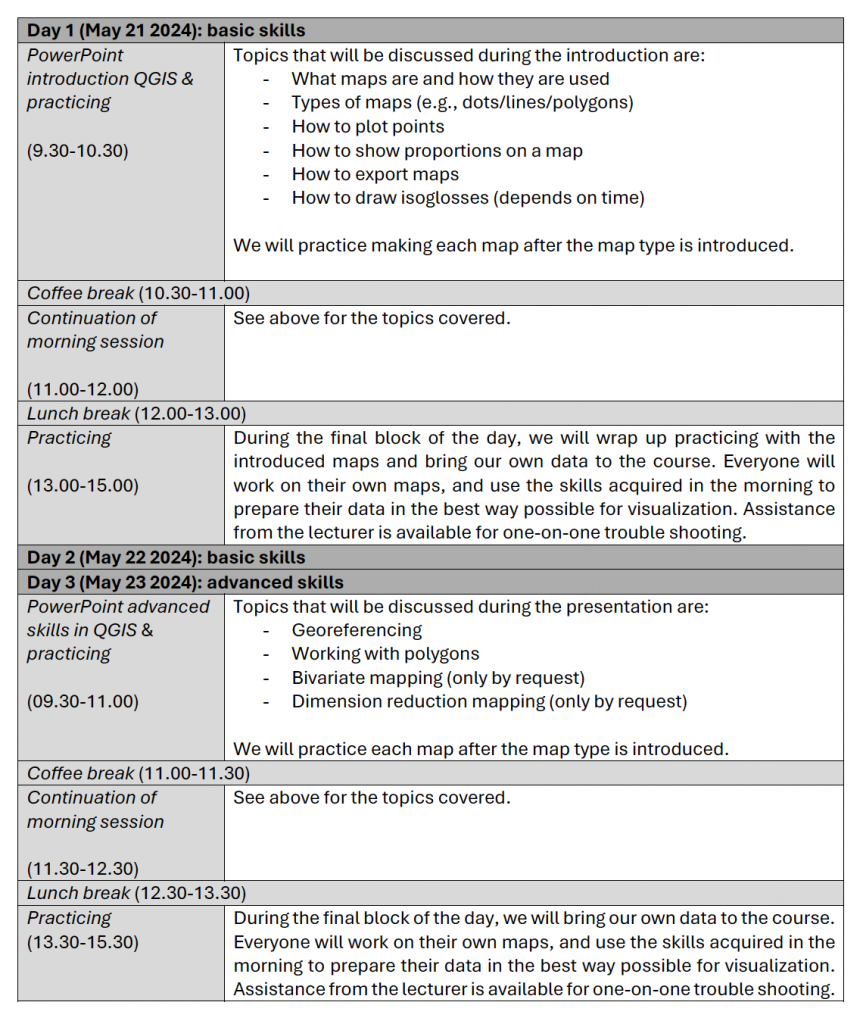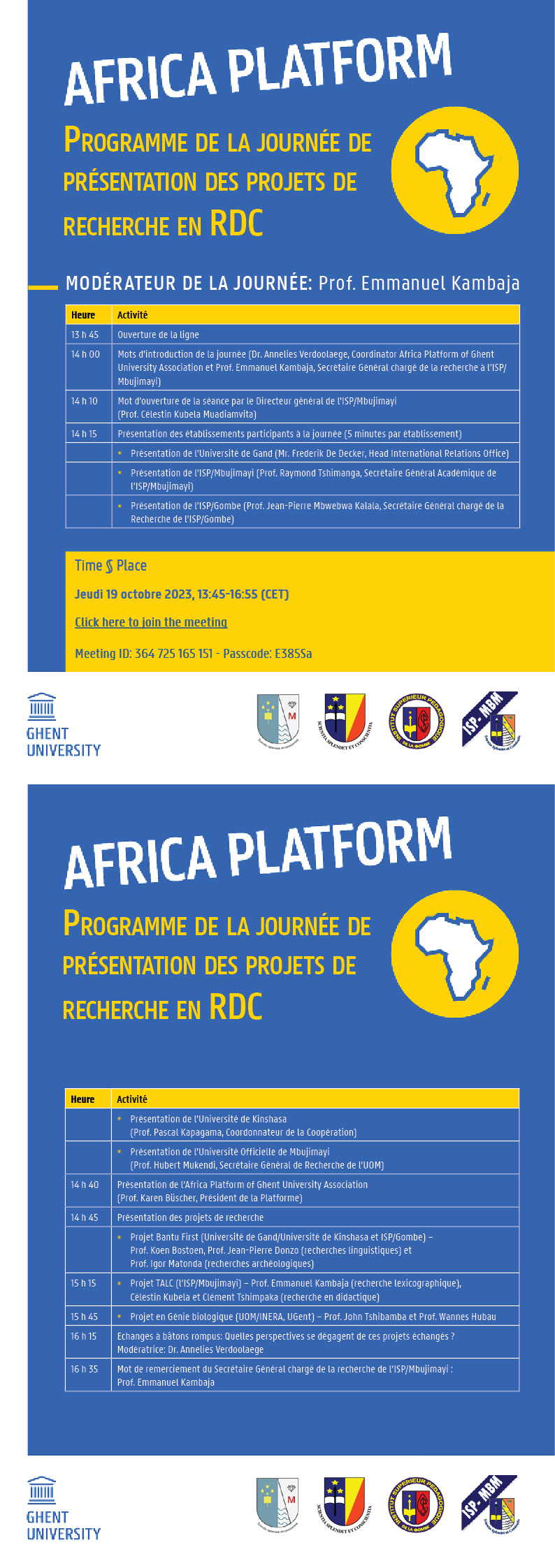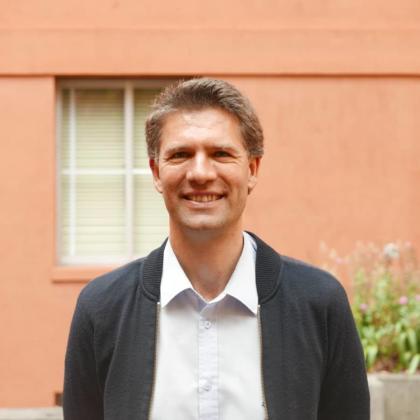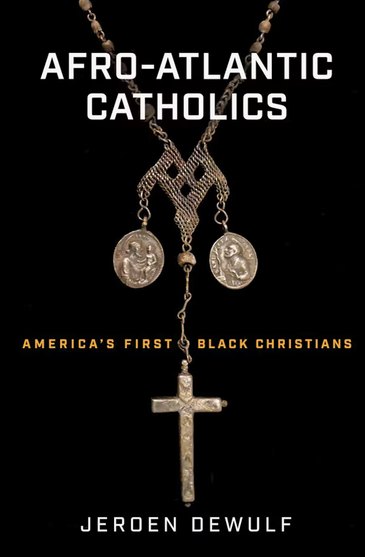What? BantUGent research seminar
When? April 29, 2024
Where? Room 2.23 – Panopticon, Blandijn, Campus Boekentoren
15:00-16:00: Megersa Regassa: “Monsters in Oromo Oral Narratives from a Gendered Perspective”
16:00-17:00: Brandon Kieffer, “Bantu Spirantization in Great Lakes Bantu”
To join the meeting online by MS Teams, click here.
Maps are an important visualization tool for linguists. However, most linguists are not trained in and thus not able to design professional maps. QGIS is opensource mapping software that enables its users to plot features, create data points, or redraw existing maps. For researchers that work with little known languages, software like QGIS is vital in providing reliable maps when there are often none available.
To this end, Matthew Sung (affiliated with the Leiden University Centre of Linguistics and the Leiden University Centre for Digital Humanities) will teach several QGIS workshops at the Faculty of Arts and Philosophy from 21 May – 23 May 2024. Participants will also apply the software to their own data. The introduction session will be run twice on 21 May and 22 May. Each session can have up to 20 participants. The advanced session will be run once on 23 May and has availability for 15 people. Please register here. Registration will close 15 April 2024.
As this event is financed by the Doctoral School of UGent and the Flemish Government, doctoral students are given priority during registration. If PhD students participate in the introduction session, it will count as a transferable skill course. If PhD students participate in both the introduction and advanced session, it will count as a specialist course. Evaluation for PhD students will be based on attendance and active participation.
If you have any questions, please reach out to: nina.vandervlugt@ugent.be.
See below for the preliminary program, still subject to change.
What? BantUGent research seminar
When? March 8, 2024
Where? Faculteitsraadzaal/Facultyroom
11:00-13:00: Simon Nsielanga Tukumu: The Decolonization of the Society of Jesus in the Belgian Congo in the post-World War II: Reasons behind the opening of the Jesuit Novitiate in Djuma
To join the meeting online by MS Teams, click here.
What? BantUGent research seminar
When? March 25, 2024
Where? vergaderzaal Simon Steven, Jozef Plateaustraat 22, 9000 Gent
15.00-16.00: Pieter De Coene: Lexicalizing spirit possession: attestations of –bandw– and related terms in Great Lakes Bantu (part one)
To join the meeting online by MS Teams, click here.
What? BantUGent research seminar
When? January 31, 2024
Where? Faculteitsraadzaal/Facultyroom
14:00-15:00: Edward Ntonda: “Chikunda in Time and Space : A Historical Sociolinguistic account”
15:00-16:00: Terefe Mitiku Mekonin “Human and animal interaction in Oromo fable”
For the Teams-link, contact: Lorenzo Maselli (lorenzo.maselli@ugent.be)
What? BantUGent research seminar: Get to know your colleague: Nina van der Vlugt
When? November 29, 2023, 2pm-4pm CET
Where? Faculteitsraadzaal, Blandijn, Blandijnberg 2, 9000 Gent
Our new colleague Nina van der Vlugt will present herself and her FWO-funded research project on Shona-languages.
More info: Lorenzo.Maselli@UGent.be
What? BantUGent research seminar
When? October 25, 2023, 2pm CET
Where? Vergaderzaal 2.23 – Panopticon, Blandijn, Campus Boekentoren + online (Teams link: Meeting ID: 354 586 660 823, Passcode: ve4DUG)
Guy Kouarata on C10 Bantu languages spoken by hunter-gatherers in the Sangha department (Congo-Brazzaville)
More info: Lorenzo.Maselli@UGent.be
En collaboration avec l’Africa Platform de l’Université de Gand (UGent) et l’Institut Supérieur Pédagogique de Mbuji-Mayi, nous organisons le 19 octobre 2023 une journée de présentation des projets de recherche en RDC. Pour plus d’informations voir ici. Pour vous inscrire, veuillez envoyer un email à Annelies.Verdoolaege@UGent.be ou emmanuel.kambaji@gmail.com.

What? BantUGent research seminar whith three research presentations!
When? June 29, 2023, 10am
Where? Panopticon (third floor, Blandijn) (https://www.ugent.be/lw/nl/diensten/infrastructuur/plannen/blandijn120tweede.pdf)
Who?
Prof. dr. Inge Brinkman: “Rainbows in oral narratives”
Dr. Guy Kouarata, “The simplification of seminasals *mb, *nd and *ng in Bantu zone A, B, C and H languages in Congo-Brazzaville and DRC”
Prof. dr. Maud Devos, “Coconuts in Bantu languages: a linguistic contribution to the story of Cocos Nucifera L. in (East) Africa”
A Teams link for those who wish to attend online is also available here.
On Thursday June 22, 2023, the UGent Centre for Bantu Studies and the Economies, Comparisons, Connections research group co-organize a talk by Prof. Dr. Jeroen Dewulf (University of California at Berkeley) on his latest publication Afro-Atlantic Catholics – America’s First Black Christians.
Venue: Faculty Room, Blandijnberg 2, 9000 Gent + online via Zoom
Time: 10:30am CET
More info: Heidi.Goes@UGent.be

The latest publication by prof. dr. Dewulf examines the influence of African Catholics on the historical development of Black Christianity in America during the seventeenth century.
Black Christianity in America has long been studied as a blend of indigenous African and Protestant elements. Jeroen Dewulf redirects the conversation by focusing on the enduring legacy of seventeenth-century Afro-Atlantic Catholics in the broader history of African American Christianity. With homelands in parts of Africa with historically strong Portuguese influence, such as the Cape Verde Islands, São Tomé, and Kongo, these Africans embraced variants of early modern Portuguese Catholicism that they would take with them to the Americas as part of the forced migration that was the transatlantic slave trade. Their impact upon the development of Black religious, social, and political activity in North America would be felt from the southern states as far north as what would become New York.

Dewulf’s analysis focuses on the historical documentation of Afro-Atlantic Catholic rituals, devotions, and social structures. Of particular importance are brotherhood practices, which were critical in the dissemination of Afro-Atlantic Catholic culture among Black communities, a culture that was pre-Tridentine in nature and wary of external influences. These fraternal Black mutual-aid and burial society structures were critically important to the development and resilience of Black Christianity in America through periods of changing social conditions. Afro-Atlantic Catholics shows how a sizable minority of enslaved Africans actively transformed the American Christian landscape and would lay a distinctly Afro-Catholic foundation for African American religious traditions today. This book will appeal to scholars in the history of Christianity, African American and African diaspora studies, and Iberian studies.



